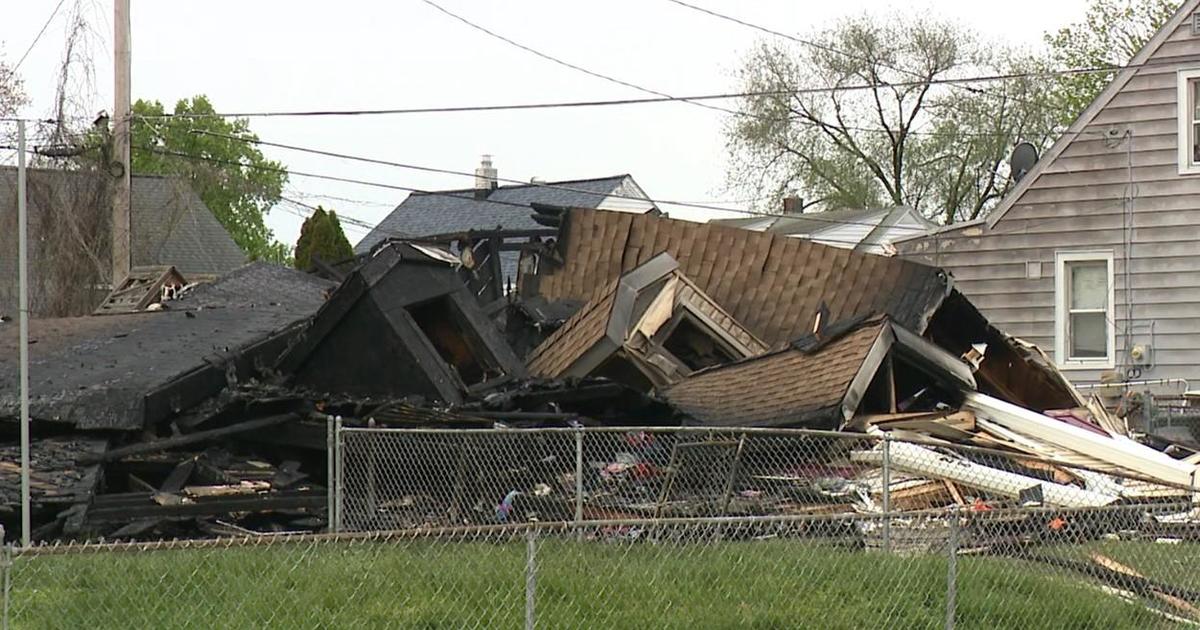Mosby Publishes 'Do Not Call' List Of BPD Officers 'Who Lack Credibility To Testify'
BALTIMORE (WJZ) -- Baltimore City State's Attorney Marilyn Mosby on Friday published her office's "do not call" list of current and former Baltimore police officers "who lack credibility to testify in court."
The list has 91 names on it, far fewer than the 305 figure Mosby cited in 2019 during testimony before the Maryland Commission To Restore Trust In Policing, a state group tasked with investigating the the Baltimore Police Department's Gun Trace Task Force.
Of those on the list, 67 have been convicted of crimes or faced internal affairs investigations of their conduct, 23 have pending criminal cases and one has a pending sentencing hearing in federal court for possession of child pornography.
Among those 67 names, only 12 are still employed with the department, with one officer's status being unknown.
Fourteen of the officers with pending criminal cases are still employed by the department. Three are not, and the status of seven is unknown.
"The Do Not Call list includes those police officers who have engaged in conduct that renders their potential testimony unreliable or non-credible," Mosby's office said in a news release.
The full list can be read here. Prince George's County State's Attorney Aisha Braveboy jointly released a "do not call" list for her jurisdiction.
Both agencies released criteria for inclusion on the list.
In Baltimore, officers are added if they are convicted of or charged with perjury, false statement or any crime involving "deceitfulness, untruthfulness, falsification" or other elements that make their testimony less credible, Mosby's office said.
Officers can also be added if there's "clear and convincing evidence" they committed crimes, made false statements or violated the Fourth Amendment.
A review committee made up of the Chief Deputy State's Attorney, Deputy for Major Crimes, Deputy for Criminal Intelligence, Deputy for Operations, Director of Policy and Chief Legal Counsel will vote on whether to include an officer on the list. A majority vote is required.
Members can also remove an officer with a majority vote after an investigation into his or her conduct is completed. The committee will meet every 90 days to conduct an ongoing review of the list, Mosby's office said.
Once an officer is placed on the list, the state's attorney's office will notify the Baltimore Police Department's Legal Division or the officer's legal counsel. Officers can request an appeal of the decision.
The committee "will request that the relevant officer be removed from performing any work which may generate a need for testimony or otherwise impact," Mosby's office said.
Earlier this month, the Maryland Court of Special Appeals ruled the list was not exempt from public records laws. A nonprofit group of activist lawyers, Baltimore Action Legal Team, filed a Maryland Public Information Act request in 2019 for the "names, ranks, badge numbers, job assignments, and dates of hire of the individual officers" on the list.
Mosby's office denied the group's request on the grounds the list met the "personnel record" exemption.
The three-judge panel determined the document that was not the case because the Baltimore City State's Attorney's Office does not have the ability to hire, fire or directly discipline Baltimore City Police officers. The court also ruled the list does not get an exemption for "attorney work-product," because such documents are prepared for a specific trial.
Following the ruling, Mosby released a statement claiming the Attorney General's Office told her she was "legally prohibited" from publishing the "do not call" list.
"I have always been clear about my desire to release this list, and this ruling and the recent MPIA law change, which I advocated for, gives us the authority to release the list," she said.
A spokesperson for Attorney General Brian Frosh's office challenged that characterization.
"It was the State's Attorney's Office's decision initially to withhold the information," said Raquel Coombs. "Subsequently, our office offered legal advice that the State's Attorney's Office was within its rights to do so."



